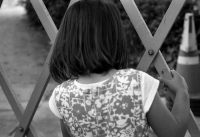
Switzerland: ODAE's report

According to Jean Zermatten, who participated in the press conference organised for the report launch, ‘We are currently witnessing what can generally be described as a tendency to criminalise migrant men, women, and children.’ Yet, the UN Convention on the Rights of the Child (CRC), which Switzerland ratified, does offer specific measures for children living through migrations, regarded as vulnerable. It also sets out general principles, including the principle of the best interests of the child (article 3). This demands that the State must opt for the solution most favourable to the development and wellbeing of the child, in all decisions that affect them. Given the situations reported by the ODAE, 'We get the impression that migratory policies systematically supersede the best interests of the child,’ Zermatten raised.
During the press conference, Zermatten brought back up the criticisms made by the UN’s Committee on the Rights of the Child in their periodic evaluation of Switzerland in 2015. The committee was preoccupied by the fact that asylum procedures for unaccompanied minors are not always carried out in the best interests of the child and that the right to family reunification is too restricted for people with provisional admission into Switzerland (F permits). The committee also underlined the disparities between reception conditions for minors, including certain cantons use of emergency shelters.
The specialist also addressed the problem of deprivation of liberty of migrant children. As a reminder, 142 children between the ages of 15 and 18 years old were detained in Switzerland in 2015, for no other reason than their status as migrants. The situation at Ticino's border, denounced by many organisations, was also brought up. Most notably regarding the pushing back of minors, which prevents filing for asylum and family reunification; lack of information; and the disastrous living conditions in the Como camp, etc.
The case of ‘Samira’ described in the ODAE report illustrates the lack of acknowledgement of the best interests of the child by authorities during expulsion decisions, following a request for asylum. This severely handicapped child, in need of specific care, along with her mother and sister, required Switzerland’s protection after fleeing Azerbaijan. Their request for asylum was rejected and the State Secretariat for Migration (SEM) determined that the decision to send them back was payable. They claimed that the necessary care was available in Azerbaijan (without mentioning its accessibility), despite doctors’ claims to the contrary. Finally, the Federal Administrative Court (TAF) ordered they be granted provisional admission, once it was discovered that the SEM had carried out additional research, without including it in their file. The omitted research concluded that indeed the young girl would not have had the option to receive her particular medical treatment in Azerbaijan.
How can we comprehend the SEM’s relentless desire to send ‘Samira’ back, when she was doubly vulnerable as both a child and by her precarious health condition?
The State Secretariat for Migration assured the press following the publication of the ODAE’s report, that they planned on taking measures in order to improve their service for unaccompanied minor asylum seekers. The French-speaking ODAE won’t hesitate to follow up on the subject.
Photo d'illustration: jmettraux flickr/cc
NB: The editorial does not necessarily reflect the opinion of IDE board and team.